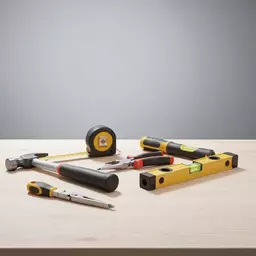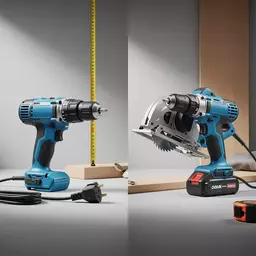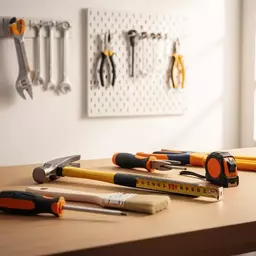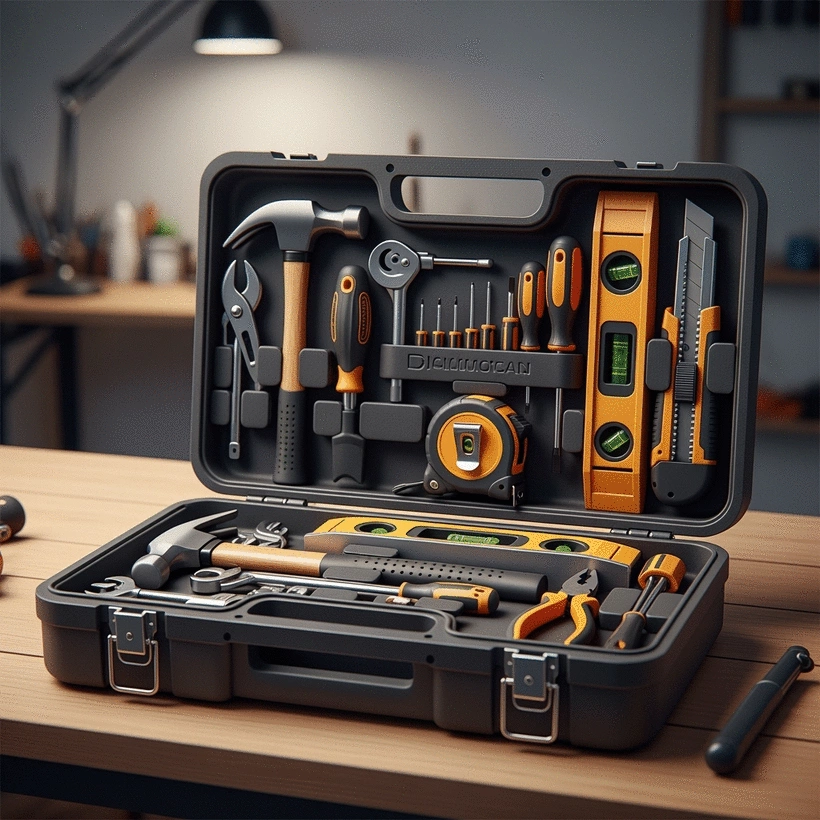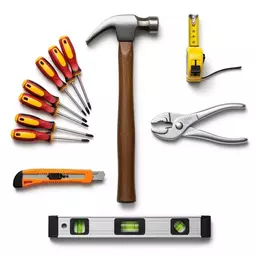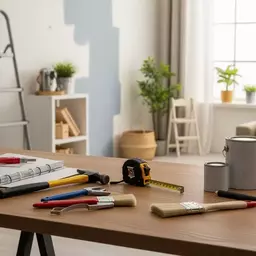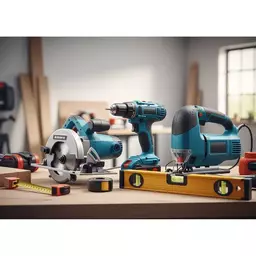Choosing the Right Drill for Repairs
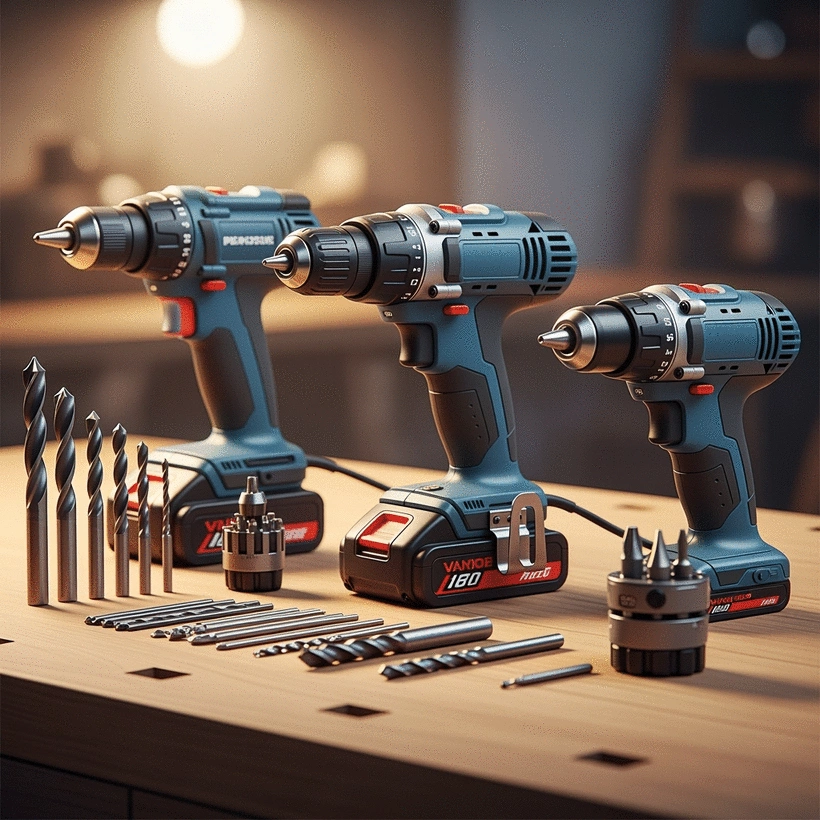
Ever considered how the right tool could transform your DIY experience? A simple switch from one drill to another might mean the difference between frustration and satisfaction in your home repair projects. The right drill can not only save you time but also elevate the quality of your work!
What You Will Learn
- Understanding the importance of selecting the proper drill enhances your DIY efficiency and safety.
- Different home repair tasks require specific drills, such as lightweight drills for hanging pictures and powerful ones for furniture assembly.
- Key considerations for drill selection include drill types, key features, drill bits, skill level, budget, and safety practices.
- Testing drills in-store can help you find one that feels comfortable and suitable for your needs.
- Utilizing online tutorials and user guides can enhance your skills and confidence in DIY projects.
Key Considerations for Selecting the Ideal Drill
Understanding the factors that influence drill selection can help you choose the right one for your home projects. Below is a summary of the key criteria. To learn more about essential tools, you might want to explore essential home repair tools.
Drill Types
Identify whether you need a cordless, corded, hammer, or specialty drill.
Key Features
Pay attention to chuck size, battery voltage, torque ratings, and portability.
Drill Bits
Choose the appropriate bits for different materials to enhance your drilling experience.
Skill Level and Budget
Be realistic about your DIY capabilities and budget constraints.
Safety and Maintenance
Prioritize safety practices and regular maintenance for longevity.
Understanding the Importance of Choosing the Right Drill for Home Repairs
Choosing the right drill is essential for any DIY enthusiast or homeowner looking to tackle home repairs effectively. The right drill not only makes your tasks easier but also ensures that they are done safely and efficiently. I’ve learned through my experiences at Hardware Store Guide that using the proper drill can significantly influence the outcome of your project!
Think about it—when you're faced with a home improvement task, having the right tools at your disposal can mean the difference between a successful project and a frustrating one. Whether you’re hanging shelves, assembling furniture, or drilling into walls, the right drill can save you time and effort while providing a professional finish! For tips on selecting other essential tools, check out our guide on choosing the right hammer.
Why the Right Drill Matters for DIY Projects
When it comes to DIY projects, the right drill enhances not only the quality of your work but also your overall experience. Consider these key reasons for selecting the proper drill:
- Efficiency: The right drill can speed up your work, allowing you to complete tasks faster.
- Versatility: Different drills are suited for different tasks, ensuring that you can handle multiple projects around the home.
- Safety: Using the correct drill reduces the risk of accidents, making your DIY projects safer.
As someone who enjoys sharing insights through Hardware Store Guide, I can tell you that understanding which drill works best for your specific tasks can empower you to take on projects with confidence. It’s all about making informed choices!
Overview of Common Home Repair Tasks
There are many home repair tasks that you may encounter, and knowing which drill to use is key! Here are some common tasks that will come up:
- Hanging Pictures: A lightweight drill is perfect for this task.
- Building Furniture: A powerful drill makes assembling flat-pack items easier.
- Installing Shelves: You may need a drill with more torque for this job.
- Repairing Fixtures: A compact drill is great for tight spaces.
Ultimately, understanding these common tasks helps you choose the right drill. It’s about matching the drill to the job, and I’m here to guide you through that process, making it less overwhelming and more enjoyable! If you're tackling more extensive projects, our article on DIY plumbing basics might also be helpful.
Pro Tip
When selecting a drill, consider investing in a multi-tool that combines drilling, driving, and even hammering functions. This versatility can save you time and money, as it reduces the need for multiple tools while handling a variety of tasks around the home.
Summarizing Your Path to Selecting the Ideal Drill
Choosing the right drill for your home projects can seem overwhelming, but it doesn't have to be! At Hardware Store Guide, I've outlined the essentials to make this decision easier. From understanding the different types of drills to considering your budget and skill level, you're now equipped to make an informed choice that suits your needs.
Here are the key considerations we discussed:
- Drill Types: Know whether you need a cordless, corded, hammer, or specialty drill.
- Key Features: Pay attention to chuck size, battery voltage, torque ratings, and portability.
- Drill Bits: Choose the appropriate bits for different materials to enhance your drilling experience.
- Skill Level and Budget: Be realistic about your DIY capabilities and budget constraints.
- Safety and Maintenance: Prioritize safety practices and regular maintenance for longevity.
Recap of Key Considerations in Drill Selection
In summary, selecting the ideal drill involves a combination of understanding your specific needs and the tools available. A drill that fits well with your DIY skills and the types of projects you undertake will make your home repairs smoother and more enjoyable. Remember, the right drill can be a game-changer—it not only saves time but also enhances the quality of your work!
As you embark on this journey, keep in mind the following tips:
- Always test the drill in-store when possible, to get a feel for its weight and handling.
- Consult with hardware store staff for expert advice tailored to your needs.
- Read reviews online to understand the experiences of other users.
Frequently Asked Questions About Choosing the Right Drill
- Q: What are the main types of drills for home use?
- A: The main types include cordless drills (for portability), corded drills (for consistent power), hammer drills (for masonry), and specialty drills (for specific tasks).
- Q: What key features should I look for when buying a drill?
- A: Key features include chuck size (to accommodate different bits), battery voltage (for cordless power), torque ratings (for drilling power), and portability (for ease of use).
- Q: Why is it important to choose the right drill bits?
- A: Choosing the appropriate drill bits for different materials ensures efficiency, prevents damage to the material or the drill, and enhances your overall drilling experience.
- Q: How do I determine my skill level and budget for a drill?
- A: Be realistic about how often you'll use the drill and for what types of tasks. Beginners might start with a versatile, mid-range model, while experienced DIYers might invest in more specialized or powerful tools. Set a budget that balances features with affordability.
- Q: Where can I get further assistance and learn more about using my drill?
- A: You can consult hardware store staff for expert advice, read online reviews, watch video tutorials, join online DIY forums, and thoroughly read the user manual for your specific drill model.
Encouraging Action: Making Your Purchase Decision
Where to Buy and What to Look For
Now that you're well-prepared, it's time to make your purchase! Local hardware stores, such as those highlighted in Hardware Store Guide, often have knowledgeable staff ready to assist you in selecting the right drill. When shopping, look for:
- A drill that feels comfortable in your hand—balance and weight matter!
- Good battery life if you're leaning towards cordless options.
- Comprehensive warranties that offer peace of mind.
Final Thoughts on Choosing the Right Drill for Home Repairs
Choosing the right drill is not just about the features; it’s about finding a tool that fits your lifestyle and projects. Remember that your first drill doesn't have to be perfect! It should be a reliable companion for your DIY journey. At Hardware Store Guide, I encourage you to embrace the learning curve and enjoy the process of home improvement! For more tips on setting up your workspace, see our advice on organizing your home workshop.
Utilizing User Guides and Online Tutorials for Assistance
Finally, don't underestimate the value of user guides and online tutorials. These resources can be incredibly helpful as you learn how to use your new drill effectively. Look for:
- Video tutorials demonstrating drill techniques and safety practices.
- Online forums where DIY enthusiasts share tips and tricks.
- User manuals that explain specific features of your drill model.
By leveraging these resources, you’ll not only enhance your skills but also build confidence in tackling your home repair projects. So, are you ready to get started? Let’s make your DIY dreams a reality! 🎉 To ensure your tools last, remember to follow our guidelines on tool maintenance tips.
Recap of Key Points
Here is a quick recap of the important points discussed in the article:
- Efficiency: The right drill can speed up your work, allowing you to complete tasks faster.
- Versatility: Different drills serve different purposes; knowing which to choose is crucial for various home projects.
- Safety: Utilizing the appropriate drill reduces the risk of accidents during your DIY tasks.
- Drill Types: Understand the differences between cordless, corded, hammer, and specialty drills to match your needs.
- Key Features: Pay attention to chuck size, battery voltage, and torque ratings when selecting a drill.
- Skill Level and Budget: Be realistic about your DIY capabilities and budget constraints to make a suitable choice.
- Utilize Resources: Leverage user guides and online tutorials to enhance your skills and confidence.
